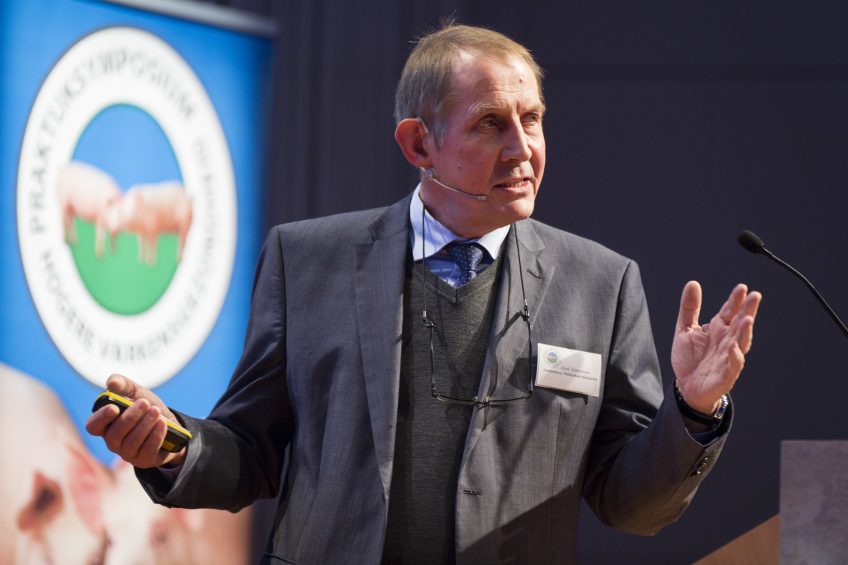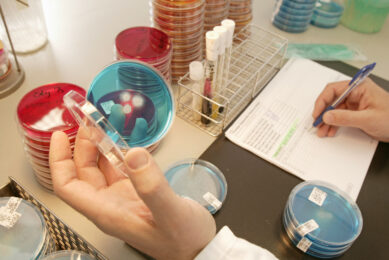“More attention please, for effects of feed on health”

Should pigs receive feed for not only growth purposes, but to keep them healthy as well? For Prof Dr Josef Kamphues, University of Veterinary Medicine, Hanover, Germany, that is a rhetoric question. He launches a plea to look at things from a different perspective.
Specialised in animal nutrition and intestinal health, German professor Josef Kamphues has been around in the area of animal health for many years. Since 1993 he has been leading the Institute for Animal Nutrition of the University of Veterinary Medicine (TiHo) in Hanover, Germany.

Find out all there is to know about pig health using Pig Progress’ unique Pig Health Tool
Prof Kamphues is not afraid to share his opinion and he is aware that his ideas do not always make a perfect match with common practice in the pig business. If it would all come down to Prof Kamphues, pig producers should start weaning their piglets at 5-6 weeks. That would make weaning diarrhoea in the vast amount of cases a problem of the past.
Pig Progress: How important is gastro-intestinal health for pigs?
Prof Kamphues: “Enormously important. In 40% of the cases in which veterinary antibiotics are being applied, the problems are related to digestive problems in pigs. I am convinced that when compiling and producing feed rations or compound feeds, technical results should not be the only consideration. The influence of the feed on pig health should receive more attention. It is important to work hard on this theme in the years to come.”
To what extent can animal nutrition play a role?
“The grinding and pelleting of raw materials goes against the stomach’s health and function as well as animal welfare. It is really bad, as it happens, to grind raw materials until nothing is left but finely ground feed. Feed is not only supposed to get animals growing, but also to keep them healthy. So the processing technology plays an important role to keep the pigs’ stomachs in top condition.”
Is it realistic to aim for a pig business without antibiotics?
“Yes – but under one condition: everybody will have to accept that the rate of animal losses in the pig business will grow significantly due to a rise in infections. This is where various demands collide. People demand a reduction in the usage of antibiotics. It is, however, also important to keep the rate of losses low and guarantee animal welfare. Vaccinations are an important tool to allow the reduction of antibiotics.”
The entire interview with Prof Dr Kamphues can be found at the website of All About Feed.
Profile
Prof Dr Josef Kamphues has been leading the Institute for Animal Nutrition since 1993, this is a part of the University of Veterinary Medicine Hannover, Foundation. Prior to that, he had a similar position in Berlin, Germany. Prof Kamphues spoke at the Higher Pig Health event, in January 2018, which was coordinated by Boerderij, a Dutch-language sister title to Pig Progress.











